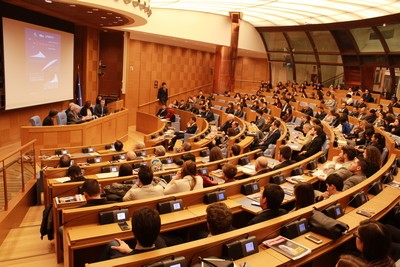 Young people and parliamentarians dialogue about “possible disarmament”. An event, promoted on May 16 at the Italian Parliament, by schools of the Political Movement for Unity and by the Young People for Unity, in memory of Chiara Lubich artisan of peace.
Young people and parliamentarians dialogue about “possible disarmament”. An event, promoted on May 16 at the Italian Parliament, by schools of the Political Movement for Unity and by the Young People for Unity, in memory of Chiara Lubich artisan of peace.Faced with the increasingly untenable situation of widespread armed conflict, large fringes of civil society continue to make noise in an effort to curb the actions of governments that with their choices support arms trafficking, which is identified as one of the causes that prevents resolutions to the conflicts. The Political Movement for Unity has long been engaged on this issue. Through its Città Nuova, the Political Movement for Unity and especially its schools on participation in politics, it continues to expose the involvement of Italy in the production of war.
The country, in fact home to strategic military bases, continues to produce high-tech weapons that also arrive in Middle Eastern countries, as reported by Città Nuova. Bombs are transited from the ports of Sardegna destined for Saudi Arabia, a country interested in the Syrian conflict and driving a coalition committed to the war in Yemen, with thousands of victims and condemned by the UN.
What to do then? A year of work accompanied by experts of international geopolitics, led to the drafting of an appeal made of concrete demands, presented to the deputies and senators available: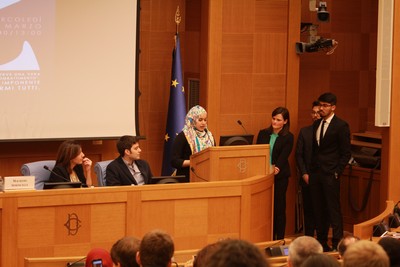
• Respect for 185/90 Law, concerning the “export control, import and transit of military goods.” In particular, it asks for the termination of exportation and transiting on the national territory to direct weapons to countries in conflict or who are committing serious human rights violations.
• The allocation of funds for the conversion of the military industry into civil purposes, with reference to the provisions in Art.1 paragraph 3 of the 185/90 Law.
• Transparency and control of banking transactions related to imports, exports and the transit of arms.
To these were also added the request for the insertion of the themes of integration and welcome in the political agenda, and the investment of more resources in international cooperation.
The youth promoters of the March 16th Meeting are well aware of the powers that be and the apparent judgment, even benevolent, of naivety that accompanies their concerns, but, as they say: “We believe we have a responsibility, due precisely to the ideals that motivate us, and therefore we cannot be silent or passive as we look at the world around us. We work in our daily lives to build fraternity and that is where we begin from in engaging governors.”
The reflection in Parliament was enriched by the contributions of Pasquale Ferrara, diplomat and university professor Interrnational Relations; Shahrzad Houshmand, Islamic theologian who teaches at the Pontifical Gregorian University; Michele Zanzucchi, director of Città Nuova; and Professor Maurizio Simoncelli, co-founder of the Institute of International Disarmament Archival Research.
At the root is the spirituality of Chiara Lubich, who saw the horrors of World War II in her own city of Trent, Italy, and throughout her life, through dialogue with people of different faiths and cultures, sowed seeds of peaceful coexistence. Chiara, just 28 year old, had also set foot in the Italian Parliament when she met Igino Giordani in 1948.
“The hope is that young people can have an impact on the political agenda, as citizens of the present and the future”, says Silvio Minnetti, chairman of the Political Movement for Unity in Italy (MPPU). “Young people are asking us questions, challenging, demanding, and and those of us where are in political field want to welcome them, becoming directly engaged in their voting choices, but also by initiating a serious reflection in order to give substance to the answers.” In an attempt To affect the political agenda even more, the Political Movement for Unity in Italy is planning to organize a mutual listening and sharing workshop to be held in the Seat of the Italian Chamber of Deputies in the coming months, to discuss the young people’s Appeal. It will include the participation of parliamentarians, experts, young people and representatives of the Italian government.

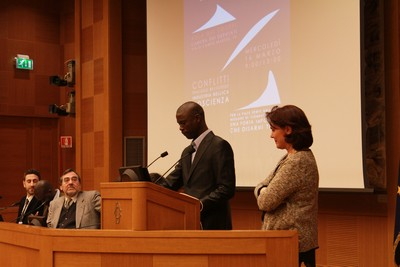
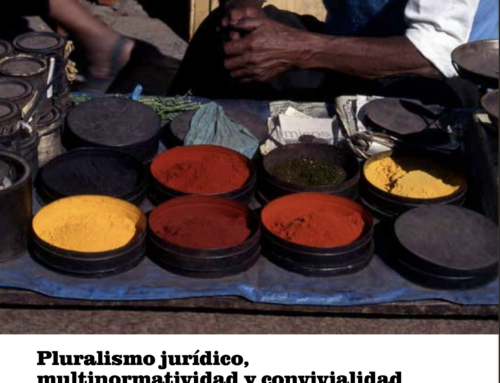


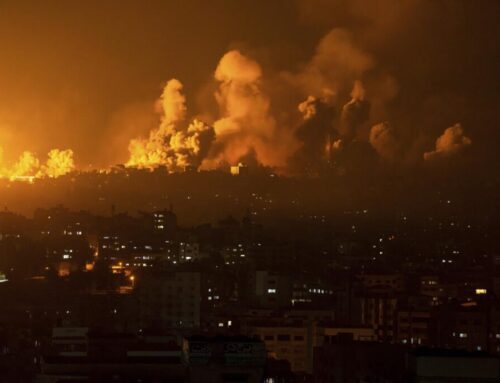
Leave A Comment